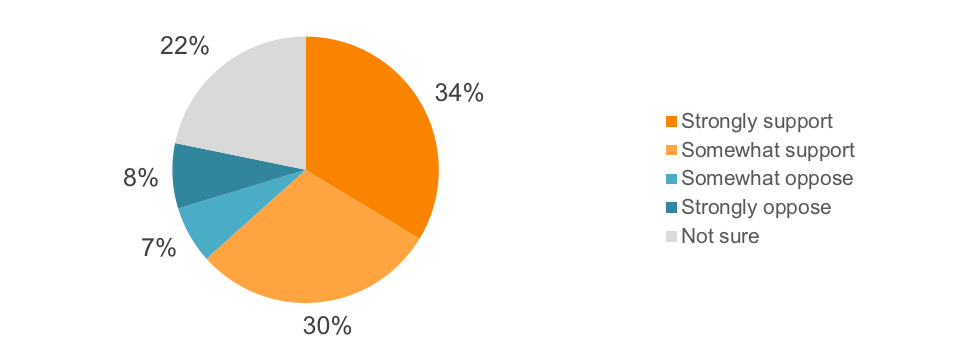While the federal Family Medical Leave Act (FMLA) of
1993 mandates employers to allow employees up to twelve weeks of unpaid leave and
to retain their health coverage for business with over 50 employees, the Colorado
State Legislature will seek to change this during the 2020 legislative session
after disagreements
during the 2019 session sunk a bill proposing up to twelve weeks of paid
family and medical leave (Anderson 2019). After the session, the Democratic-party controlled legislature set up a task force to hopefully resolve divides and get
the entire party on board with the 2020 version of the bill. Many have also said
that the failure of the previous bill in the 2019 session was nevertheless a big step forward in eventually gaining support for passage of the bill.
Resolute claims to continue to push for this bill came
from impassioned Democratic Senators, including
Senator Faith Winter, who was quoted as saying that “Ultimately we want
universal coverage, and that is not something we will compromise on… whether you
are a fast food worker or work at a law firm, you should have access to paid
leave” (The Associated Press 2019). Support is strong among Democratic female legislators
due to arguments that family leave disproportionately affects women and
minorities. Passage of a bill in 2020 also seems even more likely not only due
to the Democratic party trifecta in both chambers and the governorship but also
due to increased representation of women in the legislature even despite the fact that in the previous decade, “Republican women had been numerous and had
constituted much of the moderate wing of the party; by 2008, however, they were
virtually gone” due to a Republican party shifting away from moderate candidates
(Straayer 2011). Additionally, a recent study found that female committee
members and chairs overall change the dynamics of women’s issues and witnesses during
hearings as well as may open up more democratic forms of facilitation for
committee work, which could also aid in passing a bill in 2020 concerning paid
family medical leave.
However, some of the main opponents for the bill came
in the form numerous business interest groups due to employers being expected
to pay into the program as well and were eventually successful in stopping its
passage even with numerous concessions to appease them proposed. These
sentiments come in opposition to a March 2019 poll showing that over
64% of Colorado small business owners supporting the establishment of a publicly
administered family and medical leave insurance program.
Democratic members of the legislature still seem
determined despite interest group opposition, as evidenced by Senator Angela Williams' comment that “What the business community has to realize is that the
traditional nuclear family has changed since the federal Family and Medical
Leave Act was adopted in 1993” (The Associated Press 2019). Whether the legislature
as a whole will be able to work out divides to comes together and finally pass
the bill will, however, will still be quite the challenge.
Works
Cited
Anderson, James, “Colorado Lawmakers Advance Ambitious
Family Leave Bill,” 9 Apr 2019, accessed at https://www.usnews.com/news/best-states/colorado/articles/2019-04-09/colorado-lawmakers-consider-ambitious-family-leave-bill,
4 Dec 2019.
Daum, Courtenay W., et al., editors. State of Change:
Colorado Politics in the Twenty-First Century. University Press of Colorado,
2011 pp. 146. JSTOR, www.jstor.org/stable/j.ctt46nv8h.
Kathlene, Lyn. “Power and Influence in State
Legislative Policymaking: The Interaction of Gender and Position in Committee
Hearing Debates.” The American Political Science Review, vol. 88, no. 3, 1994,
pp. 574. JSTOR, www.jstor.org/stable/2944795.
Small Business Majority, “Colorado Small Businesses Support
Paid Family Medical Leave,” 28 Mar 2019, accessed at https://smallbusinessmajority.org/our-research/workforce/colorado-small-businesses-support-paid-family-medical-leave,
4 Dec 2019.
The Associated Press, “Colorado lawmakers vow to
return on paid family leave,” 25 Apr 2019, accessed at https://www.thedenverchannel.com/news/politics/colorado-lawmakers-vow-to-return-on-paid-family-leave,
4 Dec 2019.

Comments
Post a Comment